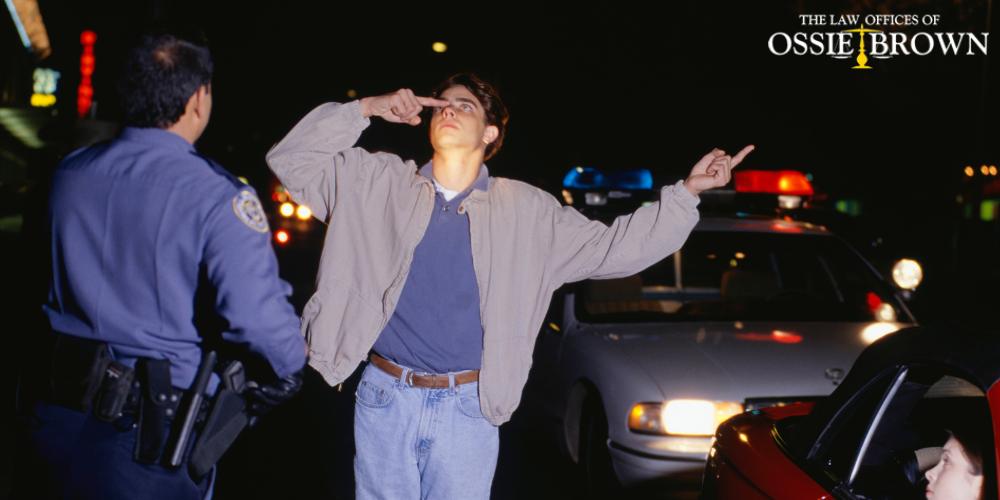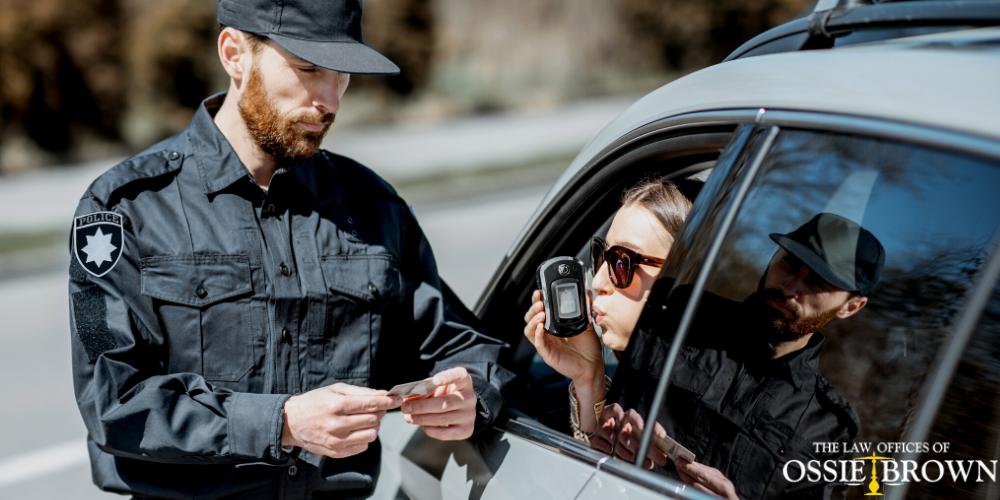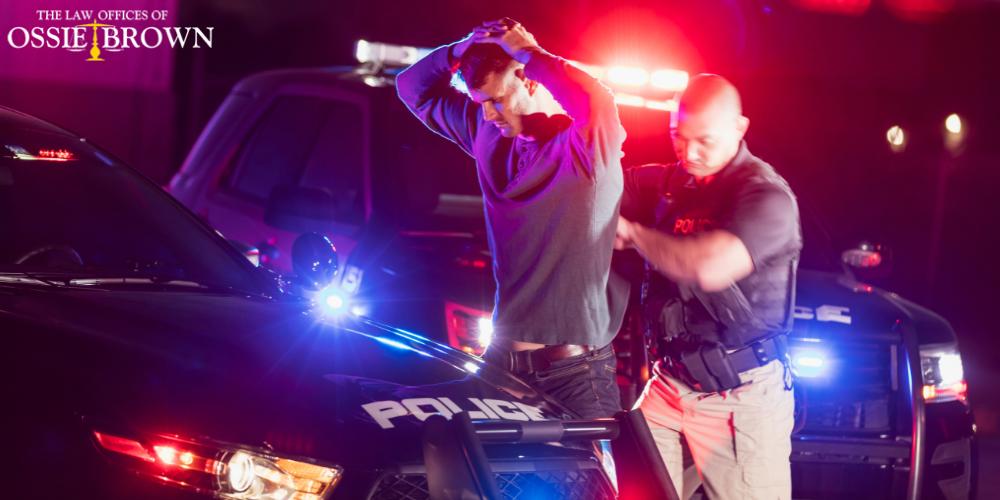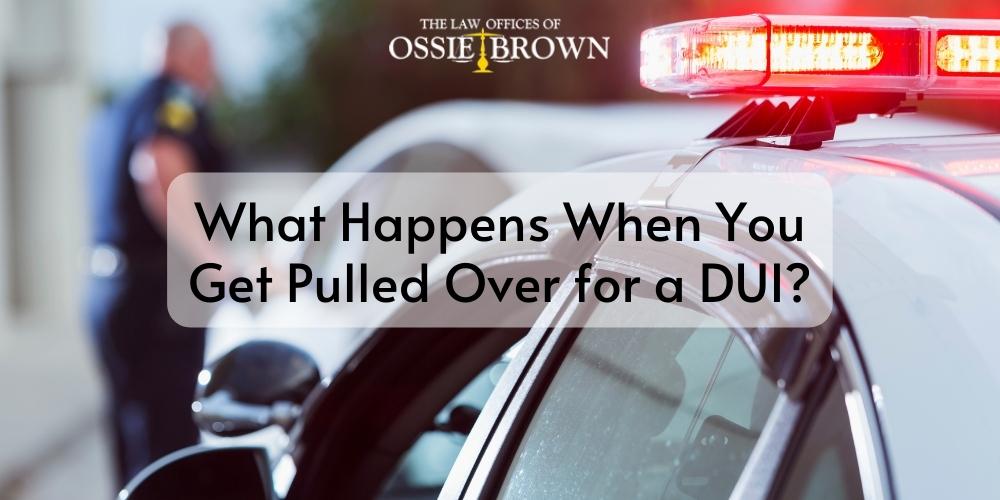Maybe you’re heading home from a bar or a party after having a few drinks, and you get pulled over for the first time by a police officer. You immediately have high levels of anxiety because you have no idea what to do or what to expect. Being anxious while intoxicated can be the perfect recipe for disaster during a DUI stop. Below, we break down exactly what happens when you get pulled over for a DUI so you can avoid any extra trouble with the law.
If you’re arrested for a DUI, you need the best criminal defense team on your side. DUI charges cannot be expunged from your record for a minimum of 5 years, and in that time, you could struggle to get a job or an apartment due to this kind of charge. Not only can our Baton Rouge DUI lawyers help you form a solid defense, but we can help you walk through the legal process as well. Call the Law Offices of Ossie Brown at 225-343-1111 to schedule a free consultation today.
What Happens When You Get Pulled Over for a DUI?
Getting pulled over for anything, whether that be for drunk driving or any other traffic infraction, is scary especially if it’s your first time. Below, we provide a step-by-step guide of what the usual police stop looks like before the actual DUI arrest.
Reasonable Suspicion to Stop
A DUI stop usually begins with an officer’s suspicion that someone is driving under the influence of drugs or alcohol. Police officers cannot perform a traffic stop for no reason; they must have reasonable cause to believe that someone is drinking and driving. If not, you can possibly use “lack of reasonable cause” as a DWI defense.
Reasons for stopping someone for a suspected DUI may include reckless driving, swerving, speeding, running a red light, etc.
It’s important to note, though, that DUI checkpoints exist all over the country. This means that police officers will sit at a specific location and stop everyone to check for drunk driving, regardless of whether the driver is exhibiting signs of intoxicated driving or not. Some states have outlawed DUI checkpoints, but in the state of Louisiana, they are completely legal.
Signs of Intoxication
If a police officer suspects intoxicated driving, they will look for further evidence once they stop the driver. Reliable indicators of alcohol or drug intoxication include bloodshot eyes, slurred speech, lack of coordination, slow movements, and smells of alcohol or marijuana emanating from the driver or the vehicle.
Police officers will usually include any details of intoxication in their police report of the DUI stop. If the stop ends in a police arrest, you will likely see this police report at your arraignment in court.
Questioning
The next step in a DUI stop is police questioning. Usually, the first question the officer asks is something along the lines of, “have you had anything to drink?”
The answer from most drunk drivers is flat out denial or an underestimation of how many drinks they have actually had. If there’s enough evidence to suggest intoxication, the incriminating questions will likely continue.
It’s important to remember that you do have the right to remain silent during police questioning, but it’s not always a good idea to remain silent depending on the circumstances of your situation.

DUI Field Sobriety Tests
If all signs point to intoxication, the next step in a police stop is a breathalyzer test and a field sobriety test.
First up is preliminary alcohol screening (PAS test), which is a fancy term for submitting to a breathalyzer test. A breath test is a form of chemical testing used to determine a driver’s level of alcohol intoxication within as little as a few seconds. If a driver’s blood alcohol concentration (BAC) is at or above the legal limit (0.08%), they are legally considered intoxicated.
Along with a breath test, the police officer will ask the driver to complete a field sobriety test (FST) as well. The most common field sobriety tests include:
- Horizontal Gaze Nystagmus (HGN): Nystagmus is a medical term that describes the involuntary jerking of the eyeballs, which is far more noticeable when you’re intoxicated. When a police officer conducts this test, they will ask the driver to follow their finger with only their eyes. If the driver is drunk, their eyes will likely jerk instead of gliding smoothly.
- Walk and Turn: This test is designed to measure a driver’s divided attention skills, which can be significantly impacted while under the influence of alcohol or drugs. Officers will ask drivers to take 9 steps, heel to toe, in a straight line. Then, they’ll ask the driver to turn on one foot and take 9 steps back in the other direction. If the driver fails to do any portion of this test, whether that be counting the number of steps, keeping balance, or touching heel to toe, they may be intoxicated.
- One Leg Stand: During this test, an officer will ask a driver to hold one foot about 6 inches off the ground and balance on their other foot while counting in one thousands (one thousand one, one thousand two, and so on). If the driver can’t maintain their balance on one foot or can’t count correctly, they may be intoxicated.
According to the National Highway Traffic Safety Administration (NHTSA), these field sobriety tests are the best way to determine if someone’s blood alcohol concentration is above 0.01%.
Mandatory Blood and Urine Tests
By this point, the police officer has determined that the driver is definitely intoxicated through a chemical test and a field sobriety test. The next step after a DUI arrest is issuing a DUI charge, which requires more evidence. In these situations, an officer will usually arrest a driver and take them to the police station to undergo a blood test or urine test.

Can I Refuse a Field Sobriety Test if Get Pulled Over for Drunk Driving?
Technically, yes you can refuse a chemical test or a field sobriety test. Legally, you can’t due to implied consent laws, which all 50 states abide by. Refusing any kind of testing will result in an immediate arrest and a wide range of penalties, depending on the state you live in.
Penalties for refusing DUI testing in Louisiana include:
- Driver’s license suspension for up to 1 year for the first refusal. If you refuse a second time, you’ll receive a driver’s license suspension for up to 2 years. For subsequent refusals, you’ll get your license suspended for up to 10 years.
- Up to $1,000 in fines and up to 6 months of jail time if there have been multiple refusals or injury and death caused by drunk driving.
Drivers who refuse testing can ask for a restricted license as long as their drunk driving didn’t cause severe bodily injury or wrongful death. But in order to receive restricted driving privileges, they must install an ignition interlock device (IID) which is a built-in car breathalyzer test. It will not allow you to start driving unless it determines that you’re sober first.
Implied Consent Laws
Let’s break down implied consent laws a bit more. In every single state, drivers give implied consent to undergo DUI testing once they pass a driving test, sign documents, and receive their driver’s license. If you take the time to read these documents carefully, you’ll see that they lay out the DUI laws in your state, which include details of breath tests and field sobriety tests. Once you sign, you’re essentially giving implied consent to undergo DUI testing if it ever came down to it.
No Refusal Enforcement
Most states do not have “no refusal enforcement” laws, but Louisiana does. Basically, this law exists because, despite the implied consent law, many drivers still refuse DUI testing when they get pulled over.
No refusal enforcement means that if you refuse chemical testing, police have the right to acquire a search warrant in order to force the driver into undergoing a blood or urine test. The main flaw in this law is that obtaining search warrants can take a while. By the time the search warrant is acquired and the driver undergoes further testing, they could be completely sober.
When Can Police Search Your Car During a DUI Stop?
In most DUI stops, officers will not search your car unless they have probable cause to do so. For example, if they stop a driver who was noticeably swerving down the road and then they detect a heavy scent of marijuana emanating from the car, they may ask to search your car. Officers do not need a search warrant to do this, they only need probable cause.

Call a Baton Rouge DUI Lawyer at The Law Offices of Ossie Brown Today
If you have been arrested for a DUI, you need an experienced criminal defense attorney on your side. At the Law Offices of Ossie Brown, our legal team has extensive knowledge of DUI laws in Louisiana. Additionally, we know exactly how to fight a DUI charge so that you can receive the best possible case outcome. Call Baton Rouge DUI lawyers at 225-343-1111 to schedule a free consultation today.


